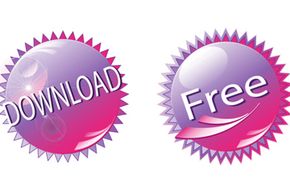Key Takeaways
- Downloading free software from reputable sources like major companies is generally safe, but caution is necessary with unknown or unsolicited software.
- Research the credibility of the source before downloading any free software and utilize tools like McAfee's Site Advisor to check the safety of websites.
- Always back up important data before installing new software and avoid using illegal methods like BitTorrent for downloading software to minimize security risks.
It happens all the time. We're minding our own business, quietly scanning the Internet, only to be suddenly confronted with a pop-up urgently telling us that we must download free software to prevent World War III from happening on our computer (or maybe from just happening in general). We're confronted with an issue: Is this a serious warning, or is it just a company preying on our fears? Worse, is it actually a virus or malware in disguise?
Or here's another scenario. Say you've been struggling to transcribe recordings from meetings and you stumbled upon some terrific transcription software that's free and ready to use with a quick installation. It seems reputable, but how can you be sure?
Advertisement
Here's the bottom line: Free software on the Internet can be convenient, helpful -- and totally unreliable. Is there any way to ensure that the software you're downloading is safe?
While there's never a guarantee, there are a few tactics for making sure your computer isn't a playground for digital thugs. First off, you'll want to know what kind of software you're dealing with. Freeware is software that's entirely unrestricted for copying and downloading (but you wouldn't have access to the code, unlike open-source freeware). It can be offered by large commercial companies, too: think Microsoft's malware protection, which you can download directly from their site. Shareware is actually owned and maintained by a company or individual and usually requires payment after a trial period. (There are also updates and plug-ins, required by something like Adobe when software is updated.)
There are a lot of different software possibilities, and not all of them can easily be identified as safe. So let's explore free software further to get some hints -- and warnings -- about the freeware and shareware that might be too good to be true.
Advertisement


